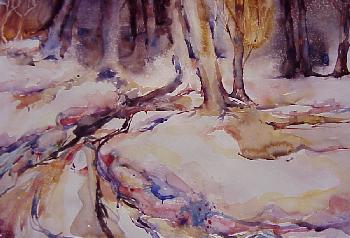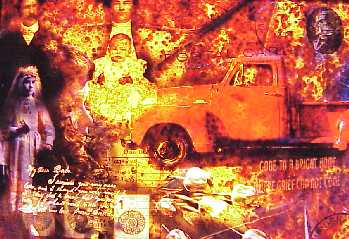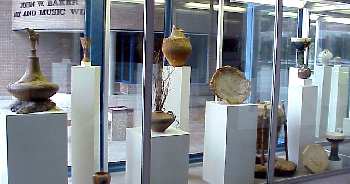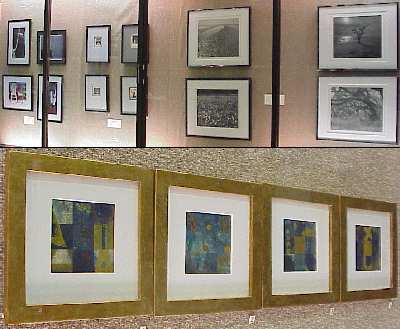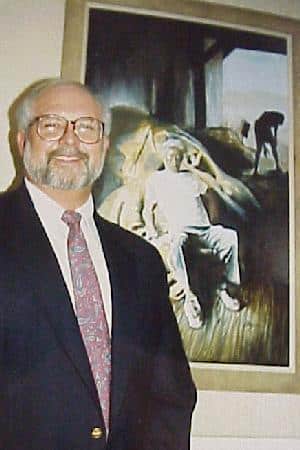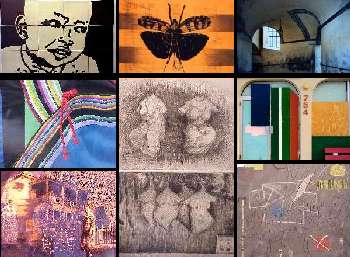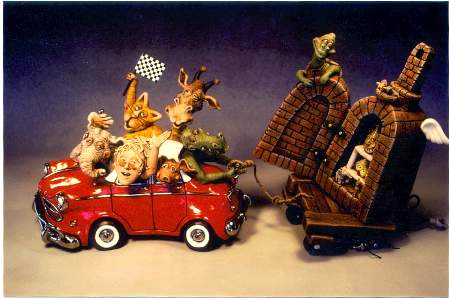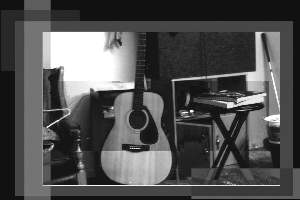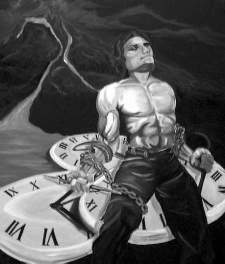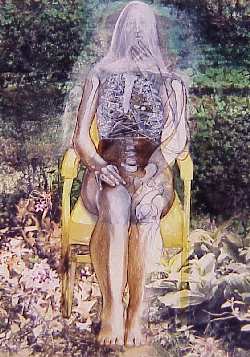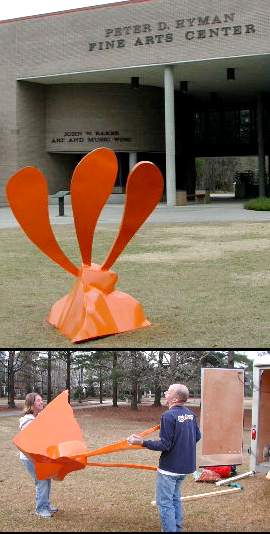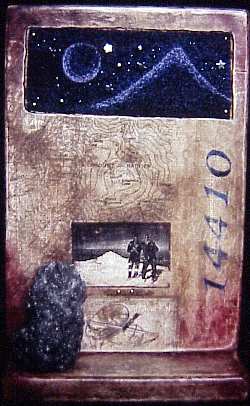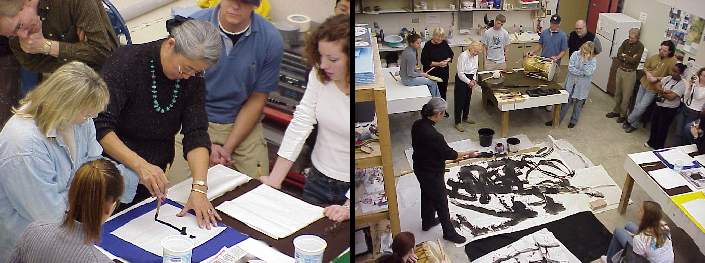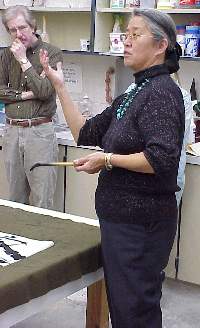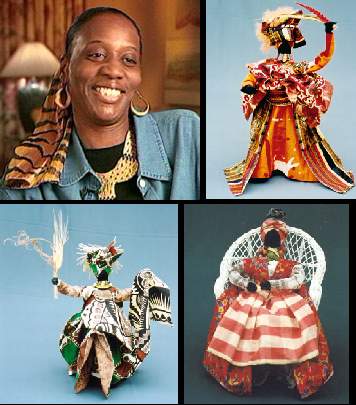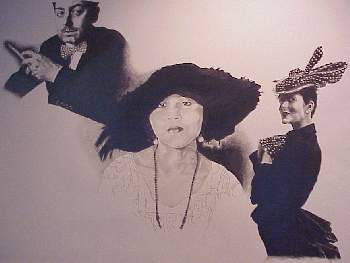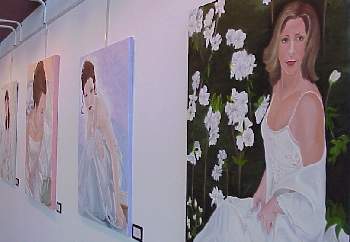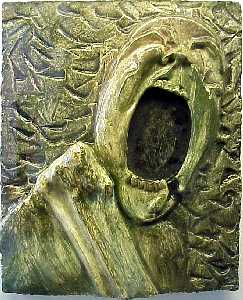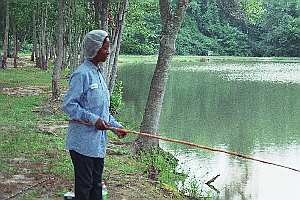Florence Artists Guild Show
Hyman Fine Arts Center Gallery
May 15 – July 26, 2003
The Florence Artists Guild is composed of a diverse group of thirty two experienced artists with the purpose of improving their skills in art through workshops, regular critiques, showing their work and exhibiting in juried competition. Within this guild there are those with works showing statewide, regionally, nationally and internationally. Members include painters of various media along with potters and photographers. Examples of present active guild members include a number of teachers, an architect, a college professor, full-time artists, a gallery and art supply shop owners, and commissioned portrait artists. There are winners on all levels of exhibitions as well as a signature member of the National Colored Pencil Society, a member of the National Watercolor Society and many members of the South Carolina Watercolor Society. The guild has an active slate of officers, a newsletter with a calendar of events, and an annual business meeting to discuss current issues and concerns. Mother and daughter artists, Jo Scarborough and Jenny LeVine are the coordinators for the Guild. The guild is most grateful the support of Francis Marion and particularly all that it offers the community artistically. Education is a very important function of the guild to the extent that recently the guild received a grant that was funded in part by the Florence Area Arts Council and the South Carolina Arts Commission, which receives support from the National Endowment for the Arts. The Guild artists travel far and wide studying under other artists and collecting more images for painting subjects. They are an active as well as social group that is supportive and nurturing of each other’s talents.
Local Clay Art by Local Clay Artists
Recent works by Doug Gray, Sasha Federer, Tari Federer, Carolyn Jebaily, Wanwadee Larsen, Elijah Thomas and Veronica White
Hyman Fine Arts Center Gallery
May 15 – July 26, 2003
Meet the Artists: Reception for Participating Artists
7:00 pm Tuesday, September 2, Hyman Center Gallery
Photography by Local Photographers
Recent photography by N. B. Baroody, Gregorio Binuya, Dewey Ervin, Steven Gately, Pam Glass, Sidney Glass, Donna Goodman, Anne Lane, Kathy Pompe, Walter Sallenger and Elizabeth Tallon
Smith University Center Gallery
May 15 – July 31, 2003
Meet the Artists: Reception for Participating Artists
7:00 pm Tuesday, September 2, Hyman Center Gallery
“Southern Reflections” — Paintings and Drawings
by L. Stephen Guyton
Smith University Center Gallery
August 5 – October 31, 2003
“Art is second nature to me in the way I see light and color. These colors and shapes take form in a way I only express through my art. As a child I, always tried to shape my surroundings to mimic nature. Sometimes, a whimsical experimental painting was the way to express my thoughts. Other times it was a photographic representation of a historical site. These earliest experiences of art shaped me as an artist and I continued to paint historical paintings such as those that hung at old Harvey’s Restaurant in Florence, SC.
“Art is as varied as life itself. In my studio, I experiment with pastel, watercolor, oil, and any other media that interests me. I sometimes see a finished painting in my mind as I talk to a client or brainstorm with others working on a design. It’s a way of communication with the bean counters of the real world. I see colors and shapes I cannot express except through my art.
“My most recent works are the design for the new Police badge in Florence, and the official Christmas Ornament for the city of Florence. The ornament is produced by the volunteer services of the Pee Dee Center. Currently, I am working on several local commissions for clients in the Southeast. My works are in public and private collections in the US, Europe and Asia.”
Faculty Show
by Francis Marion University Art Faculty
Hyman Fine Arts Center Gallery
August 12 – October 2, 2003
The Department of Fine Arts faculty in the Visual and Art Education programs will present a group exhibit of their work. This exhibit provides an opportunity for the campus and Florence community to view examples of personal research by these faculty. Included are works by Lawrence Anderson, Greg Fry, Howard Frye, Steven Gately, Donna Goodman, Doug Gray, Roberta Olmstead and Kathy Pompe. The art encompasses a wide variety of mediums and methods.
“Humanimals” — Character in Clay
by Patz Fowle
Hyman Fine Arts Center Gallery
October 7 – November 19, 2003
“My ceramic sculptures are created using a combination of manipulative media and human emotion. I find it very fascinating to create art with something that is dug out of Mother earth, using my mind, a kiln and just a few handmade tools. The ‘endless possibilities of clay’ are merged with a vivid imagination, a deep admiration of animals, and a bizarre sense of humor, to create a unique world where animals and human attitudes are combined … to tell a story. Which in turn, evokes an emotional response from within the viewer.
“A few artists of inspiration to me include Hieronymus Bosch, Leonardo da Vinci, Robert Arneson, Salvador Dali and, of course … Dr. Seuss.”
Predicaments and Perceptions
Drawings by Heidi Jensen
Hyman Fine Arts Center Gallery
October 7 – November 19, 2003
Art Talk: Heidi Jensen will discuss her work on Thursday, November 20 at 12:45.
Themes
“My current work takes the form of large-scale representational drawings executed in pastel. I use drawing as a means of intense observation and as a practice by which I undertake comprehensive study of the underlying structure and surface detail of natural forms. This body of work is based on visualized subject matter. The subjects are hybrid animal/machine creatures caught in curious situations that can be interpreted as either violent or playful. They are narrative creations that reference activities in the food chain and act as metaphors for human actions and current political and social issues. They attempt to provoke reflection on human nature and on associations involving physical or political dominance.
“The dogs themselves are constructed in the tradition of the Mexican calavera, an animated skeleton traditionally used for purposes of social satire. I use a narrative style that is common to politically oriented artists such as Mexico’s Jose Posada. Posada “used the calaveras to mock human existence and express the tragic destiny of man”. These drawings echo the calavera’s grin and turn it toward our own contemporary culture. Like the calavera, the dogs are meant to have a humorous quality. They bumble around and cause trouble. They fight with each other when no prey is present, needing some outlet for their snapping jaws. The dogs offer metaphors that can be read in multiple ways that shift with the dogs’ contexts. The dogs are hungry, but their toy-like heads cannot actually feed their bodies. They have flat shark eyes that show no sentiment or awareness. In the hunting sequence, this presents a paradox. The hunting dogs work as a metaphor for questionable actions that cannot present a true solution for a situation. They exhibit traits of greed and violence, results of an all-consuming and insatiable hunger.”
Process
“The color used in many of my drawings is intense and lurid; nuclear green and explosive orange are meant to simultaneously attract and repulse the viewer.
“I usually start with a wash of acrylic paint in a fluorescent orange or green in order for the pastels to have a ground color to react with. I then slowly build the drawing, first with a linear drawing in charcoal that sometimes remains visible, then with layers of carefully blended pastels. Pastel is an extremely fragile medium, but any other material cannot match the intensity of the pigments and the light-absorbing quality of their surface.”
Student Works by FMU Photography Classes
Smith University Center Gallery
November 4 – 21, 2003
Senior Shows by Graduating Visual Arts Majors
Sandy Lamb and Jonathan Boatwright
Hyman Fine Arts Center Gallery
November 25 – December 13, 2003
Sandy Lamb
“The quote for this piece was taken from one of my favorite movies, Braveheart. It said, “Your heart is free…have the courage to follow it.” This piece is dedicated to all of the starving artists out there. Hope will come at a time when you least expect it.
“In my series of chairs, I chose the images of chairs because I felt that the simple lines of a chair could be elegant and expressive at the same time. A single chair in a picture projects feelings of loneliness, inviting the viewer to enter the picture. As the spectator spends their time observing the chair, they begin to examine the history behind the chair.
“Chairs have a personality of their own. Some chairs seem to be rigid and uptight. Other chairs come across as being soft and friendly. There are even chairs that are too elegant and snobby to be sat on. Everyday objects can have interesting characteristics that resemble you and me; it just takes time to discover them.”
Jonathan Boatwright
“I have found several painters through my college years that I really look up to such as: Sargent, Waterhouse, Monet, Cole, and Homer. These artists really have an ability to capture a moment in time with a full rendering of light and perspective. This is something that I try to incorporate in my technique. I use a very expressive brush stroke, and I like to try to capture the human form in such an expressive way to fully convey emotion. I would love to, someday, be able to develop my technique to the level of Sargent so that I would be able to fully capture a complete moment. This is in part created through the use of light and dark to create the illusion of depth, but just using black and white will not work. It is necessary to be able to paint with the full color range and avoid a muddy effect. I love to pit the light versus the dark just for the sake of contrast, but I have a long way to go to reach the accuracy in color mixing of the masters that I mentioned. I make this effort clear in the paintings “Powerless,” and “Slipping.” The figures are placed against a high contrast background to make them, in a sense, step forward from the rest of the composition.
“These paintings are my way of releasing all the stress from college, work and the deadlines that come from being an art major. I feel that being an art major is extremely difficult because the professors in the general education field have no idea of the responsibilities of an art major. You are encouraged, as an art major, to think outside the box, but when you finally get to that point, budget cuts can stifle your creativity limiting your access to the tools you need to adequately express yourself. I express my frustrations with aging technology in my first painting “Rage.” Then I chose to show that time is unstoppable and another restriction through the lava in the painting “Powerless.” Then comes the most important confinement, the balancing of general education with the studio classes. The painting “Slipping” depicts me holding a candle that is burning on both ends. This obviously is symbolic of the burned out feeling that I have felt trying to manage a tough schedule. The gun symbolizes the destructive force from the pressure of trying to get thirty hours out of single days. I hope this series will allow me to move on with a renewed focus.”
There will be a reception honoring the artists at 7:00 pm on Tuesday, November 25, in the Fine Arts Center Gallery.
Student Works by FMU Painting Classes
Smith University Center Gallery
November 25 – December 13, 2003
Student Works by FMU Ceramics & 3-D Classes
Hyman Fine Arts Center Gallery
December 1 – 13, 2003
Layered Impressions: Figurative and Landscape Dramas
Prints, Drawings and Mixed-Media Works by Treelee Mac Ann
Hyman Fine Arts Center Gallery
January 6 – February 19, 2004
“I find myself continually returning to landscape oriented images to express my interest and love of color, texture, pattern, design, and atmosphere. The landscapes are most often generated from images and memories from my travels. The experience of travel can be seen as a metaphor for my experience as an artist; in both there is visual discovery, the excitement of seeing, accident, and problem solving. Time seems to compress during travel, thus dramatizing the changes of light and mood.
“An artist is always concerned with various levels of communication. On a purely visual level I am concerned with light, transparency, and creating a space rich with information and drama. An artwork should invite the viewer back again and again to contemplate some newly realized aspect. Compositions are cornucopias of elements of my experience and are often pieced together like a crazy quilt of photo references, memory drawing, and invention. From this mixture of sources I try to compose a space that is ‘believable’ although not necessarily realistic. he work is not only a visual collage, but also a collage of experiences and ideas. Forms taken out of context and recomposed are used to create a more complex picture and statement. Movies have been ‘my addiction’ since childhood and are the source of my interest in drama. As an artist, I can direct the elements of art to create visual dramas that imply, but do not dictate, a story.
“Texture and surface are particularly exciting qualities in a work of art. My screen prints are built through the layering of transparent and opaque inks. A certain color may be printed a number of times to obtain a particular saturation of color, unify a composition, or make changes or correction in an image. I am interested in layering media to create rich surfaces. Through layering I can create a ‘skin’ of an image. As the image matures it undergoes an aging process whereby the surface becomes richer in color and texture.”
Treelee Mac Ann is a Professor of Art at Coastal Carolina University. She received her MFA from Bowling Green University with a major in printmaking and minor in drawing and photography.
Souvenirs by Doug McAbee
Hyman Fine Arts Center Gallery
January 6 – February 13, 2004
Outdoor Sculpture Installation
January 6 – March 9, 2004
Art Talk: Doug McAbee will discuss his work on Thursday, February 12, as 2:10 pm.
“In the winter of 1979 I learned to weld.” Doug was only seven at the time, but here in his father’s welding shop was the beginning of his artistic career. He progressed from being “Dad’s helper,” through high school art classes and a college major in General Studio Art, to development as a powerful and original sculptor.
He creates “objects [with] the power to make people think . . . feel . . . and laugh. . . . Initially attracted by the brightness of the colors in this work, viewers are left to consider the logical or illogical relationship between the colors and the images.”
Doug received his Master of Fine Arts from Winthrop University, majoring in sculpture. He currently resides in Spartanburg, SC.
“This body of work utilizes bold color and familiar imagery as powerful tools for communication. Initially attracted by the brightness of the colors in this work, viewers are left to consider the logical or illogical relationship between the colors and the images. Personal associations with the colors and images may then be considered allowing the works to take on new and perhaps unintended meanings. These associations may develop as images and colors are processed and attached to personal experiences. Possible interpretations will assuredly differ from person to person, but regardless of the individual meanings derived, a conversation has been initiated between the viewer and the sculptures that leads to the transfer of ideas.
“Each experience with these sculptural forms is a process. As viewers instinctively try to decipher what the forms are, changes take place within the works that make a specific interpretation illusive. Each work represents a fusion of two or more images and forms that seem to change from one into another during visual inspection. These new forms are at once familiar and yet unrecognizable. Often these images and forms have been chosen because of their opposition to one another. This juxtaposition of disparate elements creates an interesting duality in the works that generates a multi-layered conversation.”
Altars
Fiber Arts by Fran Gardner Perry
Smith University Center Gallery
January 13 – March 19, 2004
Artist’s Statement
Recently I was asked what my favorite subject is in my own process of art-making. Oddly, I have never been asked this question of “favorites” in my work. How does one choose a “favorite” subject among so many? As I considered my answer to what became a profound question of essential preference in my work, I began to look for connections – what do I make art about most often? Landscape was my answer, but it was followed with a long explanation, because the term implies, for many, a certain style – vistas, sunsets, scenery. But my treatment of landscape and the materials that I use to convey my interest in it are not traditional. My work combines a variety of materials and techniques to evoke a sense of place. In these pieces, I wish to honor the very specific and unique locations in the world that I have visited and found meaningful and sacred. Among these places are both the humble and fantastic – a rock in a stream or a rock face in a canyon, a bleached maritime forest on the South Carolina coast or the ocean floor at low tide in the Bay of Fundy, fragments of architecture from my grandmother’s Victorian home or the Pantheon. These bits of places, fragments of memories from my travels or my home, are translated into stitchery, combined with maps, photos, drawing, and found objects, and assembled into a product that is at once art and altar. According to Kay Turner in her book, Beautiful Necessity: The Art and Meaning of Women’s Altars, the altar “makes visible that which is invisible and brings near that which is far away; it marks the potential for communication and exchange between different but necessarily connected worlds…”[i] When I began to make these objects, I was sure they were too personal to my own experience, they wouldn’t be understood without explanation. What I have found, however, is the human capacity to comprehend without specific knowledge of my intent. And what people understand about my work, even without the explanation that I was so sure was necessary, is the altar. They relate to the experience of the altar – the combination of objects and images that reveal not specific meaning but spiritual awareness. They understand the symbolism of altars and the passage through the specific to the universal. As I have developed these pieces more and more towards the concept of altars, I have often questioned my own compositional urges – why do I need to combine a map of Mt Rainier with a mural from the burnt ruins of Pompeii? But the altar requires no outside approval and indeed, wouldn’t be an altar if outside approval were either sought or necessary. The altar is brought about by the personal. By the very act of surrendering, placing the random gifts of imagery and objects together, the altar exists. And by its very existence, it speaks of reverence for this “place” we live. — August 2003
[i] Turner, Kay. Beautiful Necessity: The Art and Meaning of Women’s Altars. (Thames and Hudson, 1999), p 7.
When East Meets West
Eastern Calligraphy by Kichung Lizee
Hyman Fine Arts Center Gallery
February 24 – April 8, 2004
Art Talk and Demonstration: Kichung Lizee will discuss her work and give an interactive “Big Brush” Demonstration on Tuesday, February 24 at 11:30 am.
East meets West when Korean artist Kichung Lee Lizee brings her unique blend of Eastern calligraphy and Western thematic material to Francis Marion. The energy and pulse of calligraphy offer insights into many aspects of the living world. In Lizee’s work, the living spirit of this Eastern art form comes together with such Western forms such as Abstract Expressionism; this fusion aims for a more universal expression than may be possible through working in the individual traditions.
Kichung recently traveled and studied in Korea. She was a featured artist at the San Francisco Asian Art Museum, October 2003. She lives in Butler, TN.
The Women of Inspiration
Dolls by Zenobia Washington
Hyman Fine Arts Center Gallery
February 24 – April 8, 2004
Zenobia Washington currently creates her art in Georgetown, SC. She’s an Artist in Residence with the South Carolina Arts Commission and teaches a quarterly doll-making workshop at Art Works in Pawleys Island.
The “amazing women” in her family, inspired Zenobia to create her dolls to “celebrate life”. Initially, Zenobia’s dolls helped her grieve the loss of her brother. Now, they have become a celebration of life. “Each one is named – Bold Woman, The Healer, Finder of Lost Souls – to represent the spirit she senses in a completed work.”
Student Works by FMU Drawing Classes
Smith University Center Gallery
March 23 – April 16, 2004
Senior Shows
by Graduating FMU Art Majors
Hyman Fine Arts Center Gallery
April 13 – May 8, 2004
Student Works by FMU Painting and Photography Classes
Smith University Center Gallery
April 20 – May 8, 2004
Student Works by FMU Ceramics and 3-D Classes
Hyman Fine Arts Center Gallery
April 26 – May 8, 2004
FMU Student Art Guild Invitational
Hyman Fine Arts Center Gallery
May 13 – July 13, 2004
Danger in the Idyllic: South Carolinians at Risk
Photo Essay by Lisa Pike & Lynn Hanson
Art Gallery Series
May 18 – August 2, 2004
Smith University Center Gallery
This photo essay by professors Lynn Hanson and Lisa Pike is one of the culminating products of an interdisciplinary project involving students in Ms. Pike’s Honors Environmental Science class and Dr. Hanson’s Business Writing and Technical Communication classes during fall 2002. Over 149 students were involved in the project with at least 59 contributing to the content of a CD entitled The Mercury Problem in South Carolina’s Freshwaters. The 15 photos and interpretive labels focus on the danger of eating mercury-contaminated freshwater fish in South Carolina.
